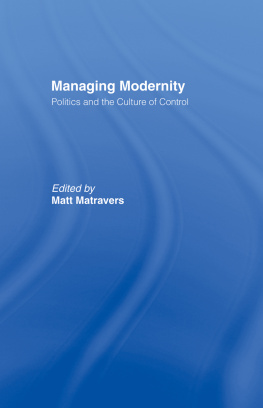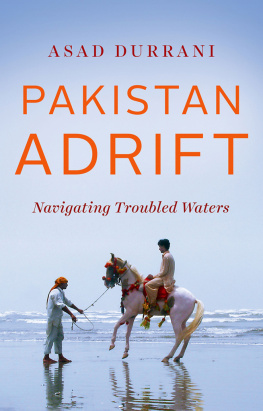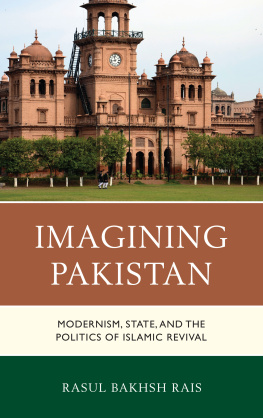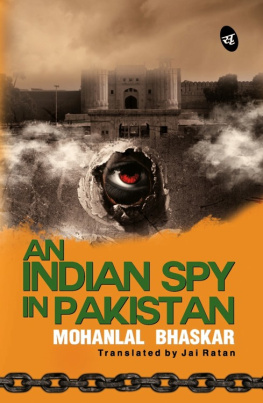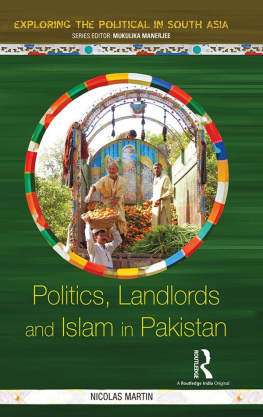SHERRY REHMAN
_____________
Womansplaining
This book does the important work of bringing together the discourse on Pakistani women's experiences, struggles and activism, presented in bits and pieces in the past, documenting and describing the depth and breadth of the journey of Pakistani women towards recognition of gender identity, collective rights and access.
Justice Majida Razvi
First Female High Court Judge in Pakistan
In the 30 years I have known Sherry Rehman, she has always been a pioneer and a true sister in a land which has not always appreciated itand one of my personal heroes. Here she brings together an astonishing collection of voices, both young and old, to tell the untold history of how Pakistans womens movement has evolvedand the battles it still faces.
Christina Lamb
Chief Foreign Correspondent, Sunday Times
A timely and important book that unites intergenerational feminists in a call to action.
Tina Brown
Editor, The Daily Beast
Womansplaining
Navigating Activism, Politics and
Modernity in Pakistan
Edited by
SHERRY REHMAN
First published 2021 by Folio Books
2021 Sherry Rehman
The moral right of the authors has been asserted.
All rights reserved. Without limiting the rights under copyright reserved above, no part of this publication may be reproduced, stored or introduced into a retrieval system, or transmitted, in any form or by any means (electronic, mechanical, photocopying, recording or otherwise), without the prior written permission of both the copyright owner and the above publisher of this book.
All enquiries to be addressed to editorial@foliobooks.pk
ISBN: 978- 969-7834-28-0 (hardback)
Printed and bound by Le Topical (Pvt.) Ltd.
Folio Books
12-B, Ross Residencia, Canal Bank Road, Lahore
www.foliobooks.pk
www.twitter.com/Folio_Books
www.facebook.com/foliobooks.pk
www.instagram.com/foliobookslahore
This book is dedicated to
Benazir Bhutto,
who taught me the importance of women
walking the halls of power.
CONTENTS
Acknowledgements
Introduction
The Womens Movement in Pakistan: Anatomy of Resistance
Farida Shaheed
The Politics of Activism: Bridging the Generational Arc
Ayesha Khan
The Fight for Human Rights: A View from the Trenches
Hina Jilani
In Her Own Voice: A Feminists Personal Journey
Zohra Yusuf
Skin in the Game: From Activism to Politics
Khawar Mumtaz
Contesting the Class Question: Moving Beyond Piety and Patriarchy
Afiya Shehrbano Zia
The Parliament Percentage: Token or Substance?
Sherry Rehman
Public Health and Womens Bodies: An Unfinished Agenda
Shahnaz Wazir Ali
Lockdown Diaries: Getting Past the Pandemic Within
Rafia Zakaria
Educating our Girls: Deconstructing Closed Doors, Closed Minds
Ayesha Razzaque
The Literary Feminists: Writing as Resistance
Bina Shah
High Drama: Retrogressive Fictions and Pakistani Soaps
Fifi Haroon
Let Girls Dream: Stories from the Edge
Sharmeen Obaid
#MeToo: Womens Rights and the Trials of the Digital World
Nighat Dad and Shmyla Khan
From the Core of the Paradox: Reimagining the Courts as Gendered Spaces
Sara Malkani
On the Legacy Track: Using the Law as an Instrument of Social Change
Maliha Zia
Caught in the Crosshairs: The Criminal Justice System
Sarah Belal
Women Workers: Bargaining Basic Rights from the Margins
Zeenia Shaukat
Navigating Development: Wins, Deterrents and New Ambitions
Ammara Durrani
On the Frontlines of Disaster: Adapting to Climate Change
Zofeen T. Ebrahim
Field Notes from the Aurat March: The Millennial Megaphone
Rimmel Mohydin
About the Contributors
Notes
Bibliography
Index
Acknowledgements
No such book is possible without collaborative energy, especially when it is a labour of love. The contributors who gladly and immediately responded are the first ones to whom I owe thanks for their generosity. Equally, I would like to remember those fearless women who are not included in the book as contributors, but who dedicated their lives to the search for the rights of women in Pakistan. While many exceptional women, both as writers and activists, have influenced my life and work, it is principally Benazir Bhutto, who literally forced me into politics and, thus, shaped the angle of the last twenty years of my life. She was not just a role model for me, she was my mentor in more ways than one. I can never lay claim to her blistering courage, charisma or sheer tenacity of purpose, but must remember that without her almost daily grooming of my raw persona, and the opportunities she insisted I take, I would never have this voice. Nor would I have had the heart or courage to carry on after we lost her on 27 December 2007. This book is as much about her, in that she set me on this journey, as it is about the women activists of Pakistan.
The other sister who shaped my life was Asma Jahangir. She was both a human rights guide and friend through many trials. We came together when she was busy fighting many fires, when I was a young journalist, and later at the Human Rights Commission of Pakistan, after which we collaborated in many ventures, but her iconic path was a higher one, almost like a shooting star that kept burning bright, inspiring and challenging many women, many norms. The indefatigable Shehla Zia, without whose selfless legislative drafting and activist embrace many of my earlier bills would be incomplete, and Anis Haroon, who built collaborative forums at Aurat Foundation, deserve much of my gratitude. Among the many who left lasting legacies, Zubeida Habib Rahimtoola, Nigar Ahmed, Najma Sadeque, Tahira Mazhar Ali, Fehmida Riaz and especially Sabeen Mahmud all helped shape many minds and activisms, including my own. Justice (retd) Majida Razvi, who served as the first woman judge of a High Court (Sindh) in Pakistan, and whose quiet valour as the Chair of the National Commission on the Status of Women in actually pushing hard to reform the Hudood Ordinances was exemplary, has always been a steadfast ally any hour of the day. Others, who continue to make their mark as diehard fighters for womens rights but could not be included in this collection, such as Nasreen Azhar, Rubina Saigol, Tahira Abdullah, Kishwar Naheed, Mukhtar Mai, Farzana Bari, Nighat Saeed Khan, Zubeida Mustafa, Amar Sindhu, Arfana Mallah, Uzma Noorani, Tasneem Ahmar, Sheema Kermani and Beena Sarwar, have all formed the bedrock of the vibrant and resilient movement. Without the efforts of these women, and many more unsung women across the country, Pakistani women would not be where they are today. This book is dedicated to these courageous women and their lifelong, selfless struggle. It is also a story we owe to others, a connecting of dots across time and space, in a world where histories are lost unless written, heroisms forgotten unless retold. For me, it is also an exercise in facing ones fears, principally one of not forgetting what is important, and of not having grown a voice. Betty Friedans famous quote sums it up for me: It is easier to live through someone else than to complete yourself. The freedom to lead and plan your own life is frightening if you have never faced it before. It is frightening when a woman finally realises that there is no answer to the question who am I except the voice inside herself. Friedan and Gloria Steinem were the early American feminist voices I read before going on full scholarship to the most diverse and enabling womens college in the United States in 1981. Both were alumnae of Smith College in Northampton, where I found a room that the poet Sylvia Plath once lived in, and a house full of women friends and supervisors who supported me through every academic, social, feminist and intellectual questioning. For just holding my hand over the years despite rarely meeting across thousands of miles, my warmest thanks to Holly Clark, for always being there, and who still found time to drive up with me to Northampton one snowy winter in 2012 when Smith College chose to honour me with their coveted star on rally day. Among American friends from a later time when I was Ambassador, I owe more than one debt of gratitude to Ray and Shaista Mahmoud, who stand like pillars of support beside every Pakistani in Washington DC, especially if they believe you want to speak for democracy in Pakistan through its many shapes and sizes, and to celebrate womens voices. I am fortunate to belong to a political party that, against the odds, made me Leader of the Opposition in the Senate of Pakistan, and for that I have to thank the pro-women President Zardari and Bilawal Bhutto Zardari. The former was careful to insist on women being recipients of the Benazir Income Support Programme (BISP), while the latter continues to push for womens rights on every forum.





